
2025 Spring Refresher
Two days of continuing medical education and connection—designed for family physicians, by family physicians.
Thursday - Friday, April 10-11, 2025
8:00 am - 4:30 pm

What to expect:
- Sessions on AI in family medicine, physician wellness, clinical updates and more.
- Time to connect with family physicians and catch up with former colleagues/classmates from across Minnesota.
Flexible options: Attend one or both days, in person or online.
Registration
Registration has closed.
Registration will open in October 2024.
Prices
| Rate | One Day | Two Days |
|---|---|---|
| AAFP/MAFP member physician (Active) | $400 | $500 |
| AAFP/MAFP member physician (Life/Inactive) | $375 | $450 |
| Nonmember (physician) | $500 | $600 |
| Nonmember (allied professional) | $375 | $450 |
| Family medicine residents and medical students | $0 | $0 |
Cancellation/Refund/No-Show Policy
Cancellations must be received by office@mafp.org in writing by April 3, 2025, to receive a refund of the registration fee minus a $50 administrative fee. No refunds will be provided for no-shows or cancellations received after that date.
Schedule / Sessions
Session, objective and presenter details will be added closer to the event.
Thursday, April 10, 2025
| 8:00 am – 4:30 pm | Thursday CME sessions |
| 7:30 am | Registration Check-in / Continental Breakfast |
| 8:00 am | Welcome |
| 8:15 am | Vaccines and Community Health: Strengthening Protection and Trust
This session will explore the vital role of vaccines in preventing disease outbreaks, reducing healthcare burdens, and improving public health outcomes. Participants will also gain practical strategies to build vaccine confidence, address hesitancy, and foster patient trust through effective communication.
Objectives:
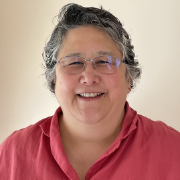 Lynne Ogawa, MD Medical Director, St. Paul/ Ramsey County Public Health Ogawa is a family physician and serves as the medical director for St. Paul/Ramsey County Public health. Ogawa transitioned to public health seven years ago because of her increasing focus on racial health disparities and political determinants of health. As medical director for St. Paul/Ramsey County Public Health, she supports all of the public health divisions: WIC, Family Home Visiting, Health Protection, Clinical Services, Healthy Communities, Environmental Health and Correctional Health. She supported Ramsey County’s response to COVID and currently provides medical direction for Ramsey County’s Withdrawal Management program in addition to her public health duties. 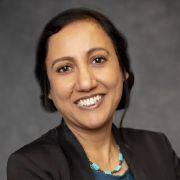 Roli Dwivedi, MD, FAAFP, DABFM Chief Executive Officer & Chief Clinical Officer, Community-University Health Care Center Dwivedi is an associate professor and the Mac Baird Vice Chair in Community Engagement and Advocacy within the Department of Family Medicine and Community Health at the University of Minnesota Medical School. She also serves as the chief executive officer and chief clinical officer at the Community-University Health Care Center (CUHCC). Additionally, Dwivedi is the current president of the Minnesota Academy of Family Physicians (MAFP) and a board member of the Minnesota Association of Community Health Centers (MNACHC). Dwivedi is deeply committed to serving underserved populations, advancing global health and providing culturally sensitive care. Her work focuses on reducing health disparities and mentoring the next generation of medical students and residents. |
| 9:00 am | Pediatric and Adolescent Gynecology for the Primary Care Provider
We will review common gynecological complaints in the pediatric and adolescent population, including menstrual and vulvar concerns. We will also review hormonal contraceptive management and PEARLS.
Objectives:
 Whitney Wellenstein, MD Staff Gynecologist, Clinical Director of Equity and Inclusion, Children’s Minnesota Wellenstein was born and raised in North Dakota and is a proud University of Minnesota graduate (Go Gophers!). As a pediatric and adolescent gynecologist, she provides care ranging from treatment of vulvar conditions and abnormal periods to ovarian cysts and complex reproductive tract anomalies. She is also committed to expanding diversity in the medical field and seeks to empower local communities through volunteer work and mentoring programs. |
| 9:45 am | Practical Ways to Address Mental Health Gaps in Care
Primary care provides the majority of mental health care to patients with mild to moderate severity and who often are without timely access to more advanced and specific providers and treatments. Here we provide several practical skills to help bridge the gap between primary care and specialty mental health interventions. The goal is to both increase the effectiveness of primary care physicians and to help with the interface with specialized mental health providers.
Objectives:
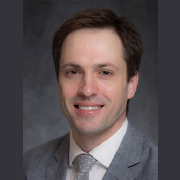 Jonathan Homans, MD Assistant Professor, University of Minnesota Department of Psychiatry and Behavioral Sciences Homans is a Child, Adolescent and Adult psychiatrist who works in community and academic settings. Through education, he seeks to increase the collective level of skill and knowledge of mental health so that our patients receive equitable and excellent care. Homans specializes in neurodevelopmental conditions and pharmacologic, therapeutic and environmental interventions to help patients and families get their medical and mental health needs met. |
| 10:30 am | Break |
| 10:45 am | Transforming Obesity Care: Innovative Approaches for Family Physicians
As the disease of obesity reaches crisis levels, family physicians are at the forefront of combating this public health emergency. Uncover the future of obesity treatment with insights into new medications, key clinical trials and a holistic algorithm for creating effective, personalized patient care plans.
Objectives:
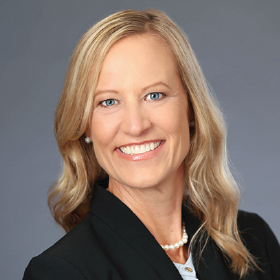 Britta Reierson, MD, FAAFP, DABOM Regional Medical Director, Knownwell Health Reierson is a family physician and obesity medicine specialist bringing holistic, comprehensive weight inclusive health care to all individuals as a practicing physician leader at Knownwell Health. Based in Minnesota, Reierson is passionate about patient centered care, advocacy and education in the field of obesity medicine. As a leader in primary care, obesity medicine, population health and health care innovation and strategy, her goal is to remove inequity, stigma, bias and barriers of care across the health care ecosystem. Reierson is active in the MAFP as a member of the MAFP Foundation Board of Directors. |
| 11:30 am | Cancer Genetics in the Primary Care Setting
This session explores the role of genetics in cancer risk, including identifying hereditary cancer syndromes, and recognizing red flags that warrant genetic counseling. It highlights the importance of guiding patients on accessing genetic data, understanding its relevance and determining which patients should be referred for genetic counseling and the appropriate referral process.
Objectives:
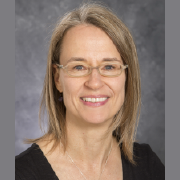 Bonnie Hatten, MS, CGC Genetic Counselor, Senior, Allina Health Cancer Institute Hatten has been a genetic counselor at Allina Health for more than 30 years, first at Minnesota Perinatal Physicians and now at Allina Health Cancer Institute. She received her bachelor’s and genetic counseling master’s degrees from the University of Minnesota. 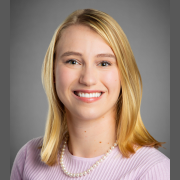 Greta Henry, MS, CGC Genetic Counselor, Allina Health Cancer Institute Henry is a genetic counselor at the Allina Health Cancer Institute, seeing patients at Abbott and United hospitals. She has a special interest in expedited genetic testing models for patients with metastatic disease. She received her bachelor’s and genetic counseling master’s degrees from the University of Minnesota. |
| 12:15 pm | Lunch |
| 1:15 pm | Diagnosis and Management of Spine Disorders in the Primary Care Setting
This course addresses the diagnosis and primary care management of the following spine disorders: urgent spine presentations/red flags; cervical and lumbar radiculopathy; lumbar spinal stenosis; acute and chronic spondylolysis/spondylolisthesis; and chronic neck and back pain.
Objectives:
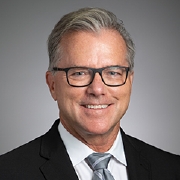 Tom Gilbert, Jr., MD, MPP Radiologist and Chief Clinical Officer, RAYUS Radiology Gilbert is a board-certified radiologist with a subspecialty in spine, musculoskeletal and pain management. Prior to joining RAYUS Radiology in 1997, Gilbert served as assistant professor of orthopedic radiology at the University of Minnesota Hospitals and Clinics in Minneapolis. He has published numerous articles and book chapters on body, spine and orthopedic imaging. Gilbert serves as the chief clinical officer for RAYUS. In this capacity, he works with the RAYUS Quality Institute Council of Medical Directors to develop guidelines for radiology clinical practices, program development, practice initiatives and patient safety. |
| 2:00 pm | Skin through the Lifespan: Common Concerns and Practical Pointers
In this session, we will identify common skin complaints through various life stages as well as practical and practice-changing approaches to manage these concerns. Many of the pathologies in this session are commonly encountered in clinical practice, but not included in standard medical education and training.
Objectives:
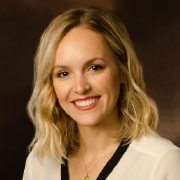 Hannah Elsenpeter, MD Family Medicine Physician, Cuyuna Regional Medical Center Elsenpeter grew up in central Minnesota and completed her undergraduate studies at the University of Minnesota Rochester. She worked as a researcher with the Mayo Clinic Vaccine Research Group prior to attending medical school at the University of Iowa Carver College of Medicine. She began her career at Cuyuna Regional Medical Center after completing residency and chief residency in Duluth. Her special interests in dermatology have led her to pursue training in dermoscopy and provide dermoscopy education for residents. |
| 2:45 pm | Break |
| 3:00 pm | Achieving Harmony: Effective Methods for Physician Well-being
Physician well-being is fundamental to sustaining a long and fulfilling career, delivering high-quality patient care and fostering a healthier community. This session will examine the critical role of well-being in medical practice, highlighting the challenges physicians face and their impact on professional performance and patient outcomes. Through evidence-based strategies and real-world insights, participants will gain practical approaches to enhancing resilience, job satisfaction and overall professional fulfillment. Attendees will leave with actionable tools to implement meaningful changes that promote a healthier and more sustainable clinical practice.
Objectives:
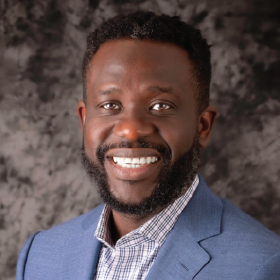 Olusola Adegoke, MD, MPH, FAAFP Staff Physician, HealthPartners Adegoke is a family medicine physician currently practicing as a hospitalist within the HealthPartners system. He serves as a preceptor for the Rural Family Medicine program and is passionate about clinician wellbeing, particularly through systems improvement, EMR optimization, AI integration in medicine and quality improvement initiatives. After completing his family medicine residency at the University of Minnesota’s St. Cloud campus, he earned a master’s degree in public health from the same institution. He is a graduate of the Leading Physician Wellbeing Program through the American Academy of Family Physicians, where he now serves as a co-facilitator, helping other physicians develop personal and systems wellbeing strategies for sustainable practice. 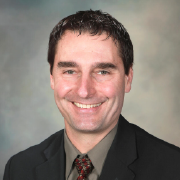 Chaun Cox, MD Assistant Professor, Northridge Clinic Mayo Clinic Health System Cox has been serving the Mankato area for over 20 years, clinically and within the community. As a former clinic lead and patient experience lead, his journey has been rewarding and challenging. As a Leading Physician Wellbeing program graduate, he has been able to meld the challenges faced in his clinic and support his team, giving him a better perspective on his own purpose and profession. |
| 4:30 pm | Wrap up and Adjourn |
| 6:00 – 8:00 pm | Resolution Forum (for MAFP members) |
Friday, April 11, 2025
| 8:00 am – 4:30 pm | Friday CME sessions |
| 7:30 am | Registration Check-in / Continental Breakfast |
| 8:00 am | Welcome |
| 8:15 am | AI in Family Medicine: Enhancing Care, Efficiency and Connection
Artificial intelligence is rapidly transforming health care, offering new ways to improve patient care, streamline workflows and enhance communication. In this session, we’ll explore how AI is shaping the future of family medicine through real-world applications and expert insights. Greenwood will share how to distinguish between AI and non-AI, gain a basic understanding of how to evaluate AI and explore some examples of AI applications suitable for their clinics. Scherman will discuss her experience using an AI-powered app to enhance efficiency in documentation. and Kakacek will provide a payor’s perspective on AI’s role in optimizing health care delivery. We’ll also dedicate time for our audience to discuss their experiences, challenges and what they’re looking forward to next in integrating AI into their practices. Objectives:
presented by: 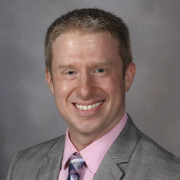 Jason Greenwood, MD, MS Director AI and CI Family Medicine, Mayo Clinic Greenwood is a Senior Associate Consultant in Family Medicine at Mayo Clinic, Rochester, and an assistant professor at Mayo Clinic College of Medicine and Science. He is board-certified in Clinical Informatics, with experience in computer engineering at IBM and startups, and is dedicated to integrating technology into primary care through development and delivery of new tools, including AI/ML models. He is involved in several roles, such as Director of Clinical Informatics and AI for RST Family Medicine, chair of the Plummer Chart Self Service Reporting Subcommittee and member of the Data Governance Committee. Greenwood collaborates with various teams and companies to create innovative tools to enhance primary care efficiency, reduce provider burnout and improve patient outcomes. 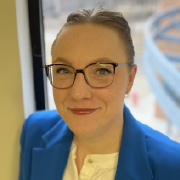 Anne Scherman, MD Family Physician/Primary Care, Allina Health Scherman is an engaged, curious and detail oriented primary care family physician working with patients in Richfield, south Minneapolis metro area.  Virginia (Ginger) Kakacek Chief Medical Officer, Health Plan, HealthPartners Kakacek is the chief medical officer for HealthPartners Health Plans. Prior to her role as chief medical officer, she served as vice president and senior medical director in the HealthPartners Health and Care Engagement Department. Her clinical work continues in both the clinic and hospital settings within family medicine through the Park Nicollet Health System clinics and Methodist Hospital. |
| 9:45 am | Sudden Cardiac Death in Athletics and Associated Screenings
There are a variety of genetic arrhythmia syndromes, congenital heart diseases and cardiomyopathies which can present in childhood as sudden cardiac events. Screening medical examinations prior to sports participation identifies risk factors and signs of heart disease, which can prevent serious cardiac events or death during athletics. Familiarity with the types of heart disease that put young athletes at risk can improve screening outcomes and bring families to cardiac care earlier. When patients are diagnosed with heart disease, ongoing engagement and updates to their activity restrictions allows the school care team to keep the patient safely participating. Objectives:
presented by:  Bradford Chu, MD Medical Director of Echocardiography, Children’s Heart Clinic, Children’s Minnesota Chu is a pediatric cardiologist with an expertise in advanced echocardiography in congenital heart disease. Engaged in a broad range of practice within the field of pediatric cardiology, he cares for fetal patients and children of all ages across multiple outpatient and Children’s Hospital locations. As the director of the echocardiography service line, he oversees the productivity of 17 sonographers and 12 medical staff, who perform and interpret 15,000 echocardiograms per year. He has led the implementation of multiple advanced echocardiographic modalities, disease and lesion specific protocols, and participates in research in pediatric cardiology and echocardiography. |
| 10:30 am | Break |
| 10:45 am | Social Media, Teens and Mental Health: How to Handle this Wasp’s Nest
Social media is a uniquely connective, enjoyable and likely dangerous normative aspect of adolescent development. While it can lead to connection, it can also lead to mental health concerns and bullying. Trends and patterns of social media use in teens will be presented to understand the current climate of screen time. How and why professionals can and should do a digital check-in will be covered. Objectives:
presented by:  Joshua Stein, MD Child and Adolescent Psychiatrist/Clinical Director, PrairieCare/Psychiatric Assistance Line (PAL) Stein, a 2023 Minneapolis Magazine Rising Star Physician, is the clinical director at the PrairieCare Brooklyn Park Partial Hospital Program (PHP), practicing as a general and child adolescent psychiatrist. As part of the award-winning Psychiatric Assistance Line, he provides psychiatric education and support to primary care physicians throughout the state to expand access to psychiatric resources. His speaking topics include ADHD, psychotropic interventions and suicide awareness and prevention. |
| 11:30 am | Buprenorphine for Opioid Use Disorder: Initiation Protocols in the Fentanyl Era
In 2025, starting buprenorphine has become more challenging due to illicitly manufactured fentanyl and unexpected adulterants. Learn different approaches and protocols to start buprenorphine at this time and support your patients and community with the care they need. Objectives:
presented by: 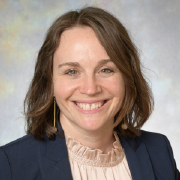 Lauren Graber, MD, MPH Physician, Hennepin Healthcare Graber is a board-certified family and addiction medicine physician at Hennepin Healthcare in Minneapolis. Along with her strong primary care background, Graber brings her experience working with adolescents, pregnant people and families with substance use. Graber sees patients in outpatient addiction clinics and works as an addiction medicine consultant for hospitalized patients. She is the co-director of Hennepin Healthcare’s Project ECHO on Perinatal Substance Use and is currently serving on the Governor’s Task Force on Holistic and Effective Responses to Illicit Drug Use.  Katie Mackay, MD Addiction Medicine Fellow, University of Minnesota Mackay is a current addiction medicine fellow at the University of Minnesota. She completed medical school at the Medical College of Wisconsin and family medicine residency training at the Saint Mary’s Family Medicine Residency program in Grand Junction, Colorado. |
| 12:15 pm | Lunch |
| 1:15 pm | Police, Prisons & Power: A Focus on Community via Transformative and Restorative Justice
This session provides an opportunity to learn, converse, share insights and explore the impact of incarceration on patients, families and communities. Learn how social determinants of health, family separation, trauma, racism and other critical factors contribute to incarceration and consider how our personal actions, individual medical practice, community involvement and advocacy can support patients and communities. This is an interactive session, requiring individual reflection, thoughtful paired and small group conversation and consideration of the perspectives and experiences of others, with a perspective of growth and learning. Objectives:
presented by: 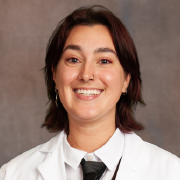 Wren Krahl Medical Student, University of Minnesota Medical School Krahl is a second-year medical student at the University of Minnesota, Twin Cities campus. They hope to become a family medicine physician and deepen their advocacy efforts in the areas of gender-affirming care, racial justice, reproductive justice and size inclusivity. As one of the former Teach-In Series chairs of White Coats for Black Lives, they are excited to co-lead a very important and thought-provoking session. 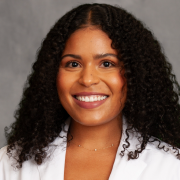 Ellis Raduenz Medical Student, University of Minnesota Medical School Raduenz is a second-year medical student, double-gopher, and Twin Cities native. |
| 2:45 pm | Break |
| 3:00 pm | GLP-1 Agonists: A New Frontier in Medicine
Since GLP-1 agonists gained their non-diabetic FDA approval for weight loss in 2014, studies demonstrating efficacy for metabolic syndrome related conditions have been mounting. This session aims to review the growing body of research regarding GLP-1s for both diabetic and weight loss indications. Objectives:
presented by: 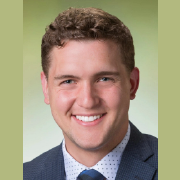 Jay Allen, MD Core Faculty, University of Minnesota Duluth Family Medicine Residency Program Allen hails from Le Center, MN. He completed his undergraduate at Wheaton College, IL, and medical school at the University of Minnesota Medical School – Duluth campus, finishing his medical training at Sioux Falls, SD. |
| 3:45 pm | Updates for Asthma Management
This session will summarize highlights from recent asthma guideline recommendations and illustrate when and how they might be implemented efficiently in a family medicine practice. Objectives:
presented by:  Barbara Yawn, MD, MSc Adjunct Professor, University of Minnesota Department of Family and Community Health Yawn began her career as a rural family physician and first woman physician in southeastern Minnesota. She transitioned to primarily clinical research and opened a department of research at the Olmsted Medical Center in Rochester, MN. She has completed practice based practical studies in perinatal depression screening, scoliosis screening, asthma and COPD screening, as well as epidemiology studies in these fields, and herpes zoster. She has served on seven national guideline panels at NIH and CDC and an international WHO panel. She has published over 450 peer reviewed papers and edited 3 books. |
| 4:30 pm | Wrap up and Adjourn |
Location
Rush Creek Golf Club
7801 County Rd 101
Maple Grove, MN 55311
Rush Creek Golf Club has ample lot parking at no cost.
Online Participation
Zoom meeting URLs will be provided by email a few days before the conference.
Accommodations
Need overnight accommodations? A hotel block is not being held for this conference, but nearby options include:
- Cambria Hotel, 9655 Grove Circle North, Maple Grove, MN 55369
952-225-2685 - Courtyard By Marriott, 11871 Fountains Way, Maple Grove, MN 55369
763-425-5355 - Springhill Suites, 11675 Arbor Lakes Parkway North, Maple Grove, MN 55369
763-275-9631
Continuing Medical Education (CME)
Application for CME credit will be filed with the American Academy of Family Physicians. 13.50 AAFP Prescribed Credits will be requested.
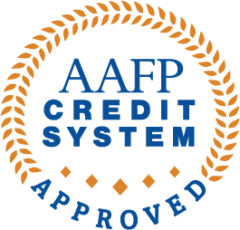
Activity #107757: The AAFP has reviewed 2025 Spring Refresher and deemed it acceptable for up to 13.50 Live AAFP Prescribed credit(s). Term of Approval is from 04/10/2025 to 04/11/2025. Physicians should claim only the credit commensurate with the extent of their participation in the activity.
Partnership Opportunities
Want to sponsor or exhibit at Spring Refresher? Package details and registration will become available by November 2024. Contact us to be on our initial contact list.
Sponsor and/or exhibit at our largest conference, bringing together family physicians from across Minnesota for two full days of continuing medical education and connection. Limited to 13 partners.